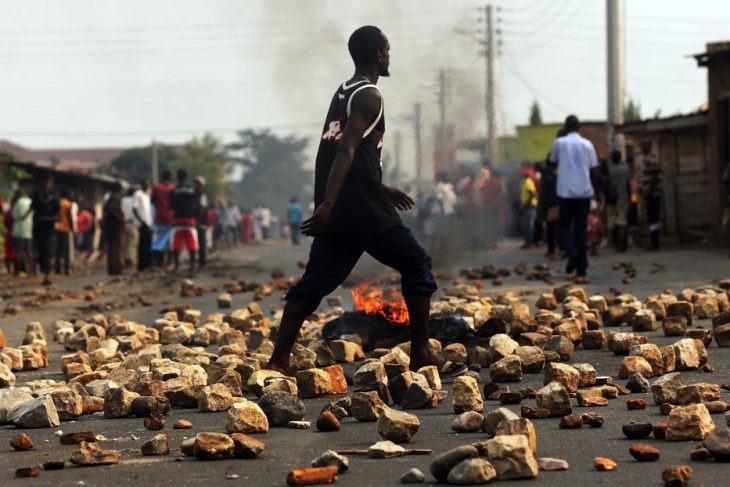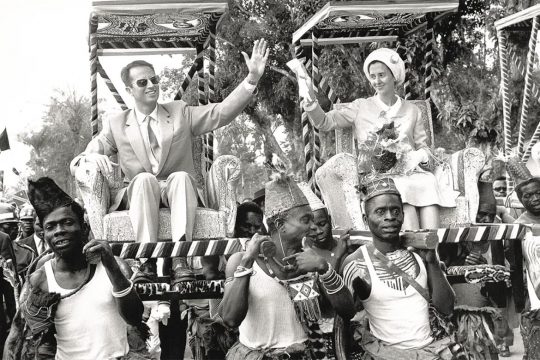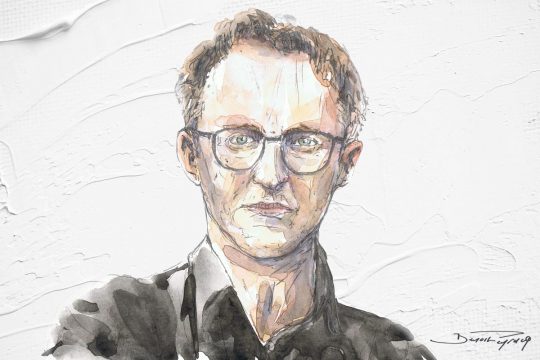Astrid Jamar joins JiC for this guest-post on recent developments regarding transitional and international criminal justice in Burundi. Astrid is a Research Assistant in Political Settlements Research Programmes at the University of Edinburgh’s School of Law.
Transitional justice has been taken a number of worrying steps in Burundi. While the Truth and Reconciliation Commission is preparing for public hearings addressing crimes committed between 1962 and 2008, Burundi has been engulfed in political conflict since the controversial candidacy of Pierre Nkurunziza and his re-election for a third presidential mandate in 2015. From the beginning of the crisis, gross human rights violations have been widely reported, making the problem of impunity even more serious. Two decisions from the Burundian authorities over the past week illustrate their attitude towards the problem of impunity in relation to ongoing crimes: the Burundian government’s declaration that the UN human rights investigators are persona non grata in Burundi after the publication of their report on Burundi; and a law has been adopted to withdraw from the International Criminal Court (ICC).
These decisions are in line with other rejections by Burundian authorities of international involvement in the crisis. This includes the refusal of an African Prevention and Protection Mission in Burundi – MAPROBU from the African Union – or a UN Police Mission to be deployed, refusal to engage in the East African Community-led dialogue with the armed oppositions. They also demonstrate the failure of international initiatives to effectively promote human rights and the international justice agenda. Despite rhetorical and policy commitments towards transitional justice and human rights from Burundian authorities and international donors, the human rights situation has severely deteriorated over the past few years. This piece aims to place these recent developments in the context of the national and international political battles in play, and underlines the crucial need to refocus the debate on the implications for Burundians.
Old and Recent Problems of Impunity
The problem of impunity is not new to Burundi. In 2000, the Arusha Peace Agreements provided for truth-seeking and judicial mechanisms to address the legacies of four decades of violence. None of them has yet been fully implemented. After long and difficult negotiations, a truth and reconciliation commission (TRC) was established in 2014 and its implementation was launched in March 2016. Even before the current crisis emerged, most scholars assessing transitional justice in Burundi agreed that there were limited prospects for accountability. Given the current situation and the departure of many critical voices from the country, the potential contributions of the TRC are even more questionable.
In parallel, a United Nations Independent Investigation on Burundi (UNIIB) was established in December 2015, among other regional and international responses to the ongoing crisis. Three independent experts were appointed. They initially planned four visits to Burundi. Only two missions could take place due to political and security problems.
Published on 20 September 2016, the experts’ final report concludes that, even if no exact overview of the situation could be established given the security risks in investigating these crimes, more than one thousand people have been killed, thousands have reportedly been tortured, unknown numbers of women have been victims of various forms of sexual crimes, hundreds of people have disappeared, and thousands remain in illegal detention. From April 2015 to August 2016, 286,036 sought refuge in neighbouring countries, according to the UN HCR. Overall, the 23-page report clearly denounces the political and targeted nature of crimes committed by security forces. It acknowledges third parties also committed gross human rights violations. However, the report notes “the responsibility for the vast majority of these violations should be laid at the door of the Government”.
Political Battles Around Ongoing Problems of Impunity
On several occasions, the investigators denounced the “blanket denial of all violations”, the lack of responses to numerous communications and the refusal of most suggestions from the authorities, and non-existent mechanisms of accountability by the government, resulting in a situation where impunity is endemic. As a result of the report, the UN OCHR Council created a commission of inquiry to conduct “investigation into human rights violations and abuses in Burundi since April 2015, and to identify alleged perpetrators”. For people keeping a close eye on Burundi, the content of the report is not necessarily revealing new elements. Of course, it provides a more authoritative voice to denounce the alarming situation. The reactions from Burundian authorities, including key actors in charge of human rights and rule of law matters, are leading to political battles with critical voices, including the UN, and representation battles about what is happening in Burundi rather than addressing the situation.
Burundian authorities have reacted negatively to the dissemination of the report findings. Martin Nivyabandi, Minister of Human Rights, Social Affairs and Gender, condemned “the lack of professionalism of the report” for failing to account for crimes committed by different criminal groups, external interference and the role of Rwanda in the destabilisation of Burundi by providing training to refugees. Jean Baptiste Baribonakeza, from the Independent National Commission for Human Rights, stated that he was “not convinced by the evidence offered by the Independent Investigation” but still promised collaboration with Burundian authorities to improve the situation. More importantly, Alain Aimé Nyamitwe, the Minister of Foreign Affairs, sent a brief letter to all Burundian ambassadors to declare that the three authors of the report were persona non grata on 10 October 2016. The Government also suspended cooperation with the UN OHCHR. These reactions are nunsurprising and consistent with the Burundian authorities’ rhetoric: Burundi has an efficient government in place and is a sovereign state; its own national courts can deal with ongoing crimes, the security situation is improving in Burundi, and critiques are part of an international conspiracy.
The Burundian authorities have also adopted a law to withdraw from the ICC. On 12 October 2016, 94 members of the National Assembly voted in favour of withdrawing from the ICC, 2 voted against and 14 abstained. All members of the Senate voted in favour of the law. From here, the Burundian authorities need to send an official notice to the Secretary-General of the United Nations. It will then take one year before its withdrawal is effective. South Africa has since joined Burundi in seeking to withdraw from the Court.
In April 2016, the ICC launched a preliminary examination “on acts of killing, imprisonment, torture, rape and other forms of sexual violence, as well as cases of enforced disappearances that have been allegedly committed since April 2015 in Burundi”. Unpacking the legal consequences of the withdrawal for the ongoing examination, Alex Whiting notes “there is no question that as long as the formal investigation commenced before the effective date of withdrawal, the Court would retain jurisdiction and Burundi would also continue to be legally obliged to cooperate with the investigation, even after departing the Court”.
It has been claimed that the withdrawal is in reaction to fear of prosecutions from Burundian authorities. At the same time, the withdrawal is as much about the ongoing diplomatic battles, and to further contest international critical voices. Stef Vandeginste underlines how “[i]n the eyes of the Burundian government, however, the undisclosed intention of the West is a regime change in Burundi and the ICC preliminary examination is part of that international conspiracy”. Even if most donors never put much pressure on Burundi to implement the transitional justice mechanisms provided for in the Arusha Peace and Reconciliation Agreement, the withdrawal from the ICC would further deteriorate the relationship between Western countries (current main donors for Burundi) and Burundian authorities, who would all want to return to business as usual.
In Conclusion: A Clear Message of Impunity
The message from last week is clear. Burundian authorities have no intention of addressing the gross human rights violations. They criticise the political nature of the UN OHCHR report – for failing to denounce crimes committed by other armed groups and the negative influence of Rwanda – and the partiality of the ICC. Meanwhile, serious human rights abuses continue to be committed and fundamental political and civil rights have been wiped out. Despite the increasing professionalisation of transitional justice, including the creation of new legal instruments and institutions, these have proved ineffective in dealing with the problem of impunity in Burundi.
My wider research unpacks transitional justice as a battlefield in which national and international practitioners argue about the past, a battlefield created by the frictions between a universal discourse, its technocratic aid-dependent practices, and the often silenced but highly politicised negotiations and implementation. These recent developments demonstrate clearly how the battle is currently taking place at the international scene: debating about who is legitimate to define what should be done, and whose responsibility should be highlighted for the ongoing crimes. Burundian authorities have so far instrumentalised the advantage of the diversity of stakes and positions behind regional and international actors pushing for a solution in Burundi.
In the short term, questions related to the feasibility of an UN Inquiry or the ICC debate triggered in the past week have unfortunately failed to change the situation. Is it not time for international actors to acknowledge both their limited leverage capacity and the political nature of their intervention? This could be an important step towards bringing the suffering of the Burundian population to the top of the agenda.





